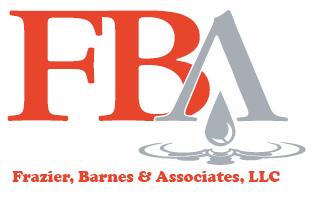Biomass Services
FBA is a leader in the United States in the evaluation of biomass projects for producing energy, fuel, chemicals, and other biobased products. The term “biomass” means any plant derived organic matter available on a renewable basis, including dedicated energy crops and trees, agricultural food and feed crops, agricultural crop wastes and residues, wood wastes and residues, aquatic plants, animal wastes, municipal wastes, and other waste materials.
Biomass Technologies
Biomass technologies use renewable biomass resources to produce an array of energy related products including liquid, solid, and gaseous fuels, electricity, heat, chemicals, and other materials.
Bioenergy ranks second (to hydropower) in renewable U.S. primary energy production and accounts for three percent of the primary energy production in the United States. Biopower technologies are proven electricity generation options in the United States, with 10 gigawatts of installed capacity.
Cellulosic biomass is being developed as a feedstock for the renewable fuel industry.
Almost all of today’s capacity is based on mature direct-combustion technology.
Biomass technology is increasingly used to generate power for agricultural processing and renewable fuel facilities.
Biobased chemicals and materials are commercial or industrial products, other than food and feed, derived from biomass feedstocks. Biobased products include green chemicals, renewable plastics, natural fibers, and natural structural materials. Many of these products can replace products and materials traditionally derived from petrochemicals, but new and improved processing technologies will be required.
Industry Experience
Even though the biomass industry is relatively young, FBA has already completed numerous projects including:
Greenhouse Gas Calculation Analysis
Developed methodology and analysis for GHG calculations on new crops for established crop technology company.
Biomass to Electricity Project
Conducted feasibility analysis and provided project development services including technology selection, power purchase agreements and capital acquisition for a 7 MW biomass to electricity facility in the Mid-South.
Methane to Electricity Project
Conducted feasibility analysis for international firm to generate electricity using methane from a water treatment facility.
Biomass Education Project
Assisted in the development of a biomass education program that identified potential biomass feedstock to be utilized in Tennessee. Made presentations across the state to potential biomass project developers.
Anaerobic Digestion By-Products Study
Feasibility of anaerobic digestion of acid whey and yogurt into biogas and digestate.
Anaerobic Digestion of Swine Waste
Feasibility of locating an anaerobic digestion facility in north-central Iowa to process swine waste from the estimated 80,000 feeder pigs in the region.
Cottonseed Oil Mill Biomass to Energy Project
FBA evaluated the feasibility of utilizing alternative energy sources for process steam generation at a cottonseed processing plant utilizing state-of-the-art boiler technology.
Agricultural By-Products Cogeneration Study
Conducted an evaluation determining the process and economics for converting soybean hulls and corn germ into thermal energy for an Iowa soybean processing plant.
Landfill Gas Utilization Project for an Existing Soybean Processing Facility in the Upper Midwest
Identified requirements for converting from natural gas to methane gas. Negotiated with the landfill owner and pipeline operator. Project resulted in significant energy savings for the processing plant.
Biomass Cogeneration Feedstock Study
Analysis for Arkansas based agribusiness to determine the availability and suitability of biomass feedstocks for a cogeneration project.
Statewide Biomass Conversion Study for Georgia
Comprehensive Bioenergy feasibility analysis for multiple feedstocks and technologies.
In addition, FBA has been successful at developing grant applications for existing operations and “startup” groups, performing USDA level feasibility analysis and assisting in project commercialization.

